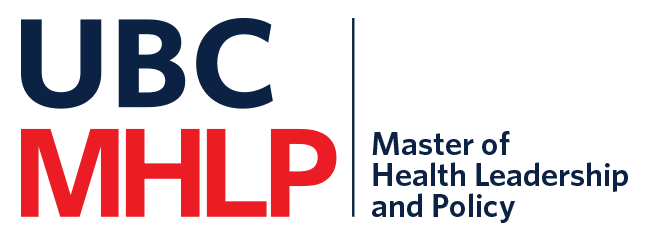
Guest Speaker Series: Arlene Singh on Virtual Care during COVID-19

On January 27, Arlene Singh, Clinical Planner for Virtual Health at Vancouver Coastal Health (VCH) and 2019 MHLP Clinical Education alumna, spoke with the current cohort of MHLP students about the acceleration of Virtual Care at VCH during the COVID-19 pandemic and the challenges that the health care industry faces in creating accessible and high-quality virtual practices.
An educator and innovator
Singh is determined in her resolve to drive innovation in health care to improve patient experience, quality of service, and process efficiency—excellently representing how MHLP students and alumni share the unique strength of being positive change-makers.
Her clinical background is in Emergency Nursing, and she has experience working internationally at a start-up hospital she took on roles supporting unit-based education and quality improvement. Further, Singh has also worked as a clinical instructor for both UBC and BCIT specialty programs.
The challenges and opportunities of virtual care
Singh discussed the incredible acceleration of virtual visits hosted via video conference software during the COVID-19 pandemic and its resulting social restrictions. Currently, Zoom, Skype, FaceTime, and Doxy.me are the main software programs utilized at VCH, with video sessions being used to communicate with patients, providers, families, and clinics.
While virtual care offers a myriad of benefits regarding accessibility and ease, health care institutions face the challenge of virtual reliability due to challenges on two main fronts: technology and accessibility.
Solutions have been introduced in the following areas:
- VCH care sites have increased their bandwidth through WiFi extenders so that more calls to reduce connectivity issues and enable practitioners to virtually connect with more clients at one time.
- The Citizen Support Line was created to help various patient populations increase their digital literacy. Further, VCH has increased funding for educational workshops for patients in Long Term Care as well as those enrolling in virtual exercise programs.
- Virtual appointments have been made increasingly available for patients in rural communities who are far from health specialists in urban centres and unable to safely travel.
- Compatibility between various technologies has been increased through the integration of Zoom across health care. VCH has also implemented a Zoom Outlook plugin to increase the efficiency of the app’s usage.
These newly implemented practices to overcome the two largest challenges of quality care in virtual health: technical difficulties in the transition from in-person to virtual practices, and accessibility challenges regarding one’s ability to effectively and efficiently use virtual platforms. As these challenges are progressively addressed and resolved, virtual care is becoming broadly and easily available across British Columbia.
Virtual care is at the forefront of health care in this moment, for both patients and frontline workers.
With the help of strong clinical connections, MHLP students remain tuned into the current trends and challenges in health care, as well as the innovative strategies that keep the industry evolving and progressing. Upon graduation, the 2021 MHLP cohort will be prepared to adopt and improve these current practices.
Are you interested in accelerating your career in health care? Explore UBC’s Master of Health Leadership & Policy, and how our alumni have become clinical leaders.
Application Deadlines
The online application portal for the January 2025 has closed.
Get ready to apply!
Admissions for the 2026 intake will open on January 1, 2025.
How to ApplyJoin us for an
Info Session
Sign up for our latest online information sessions and discover what our programs have to offer.
Sign Up Now
